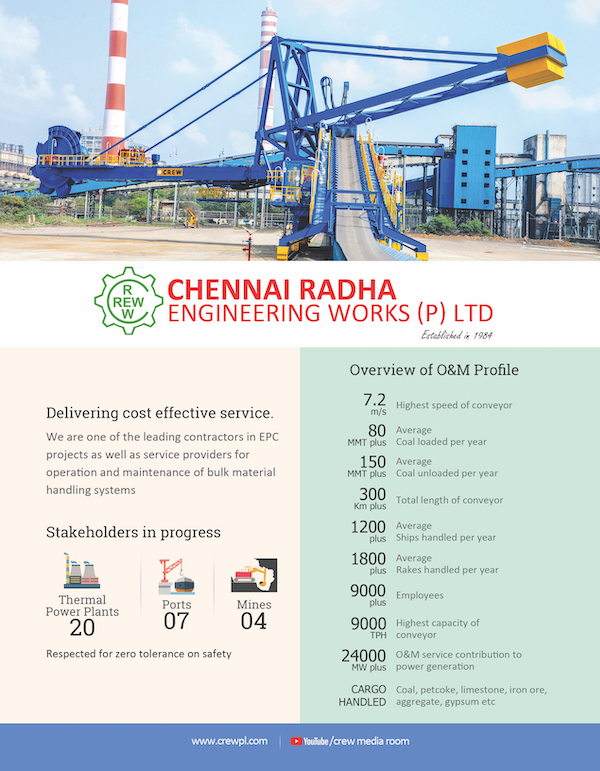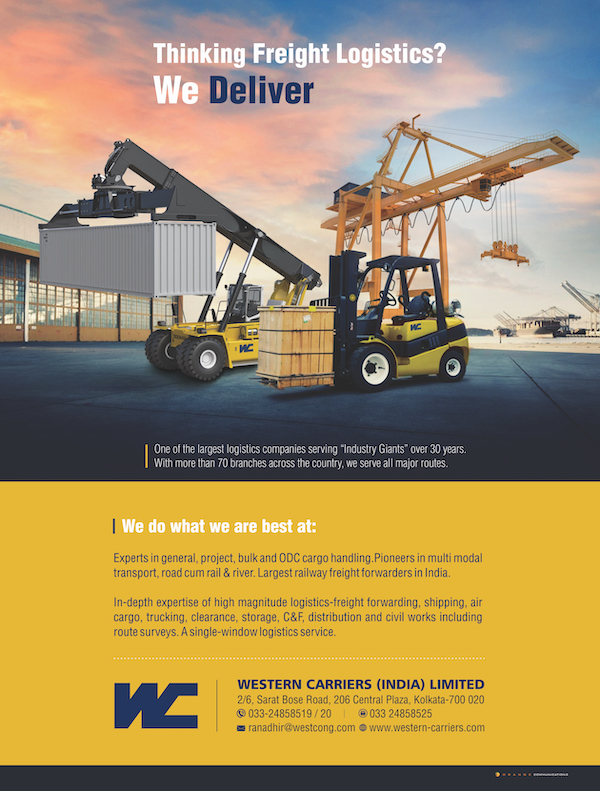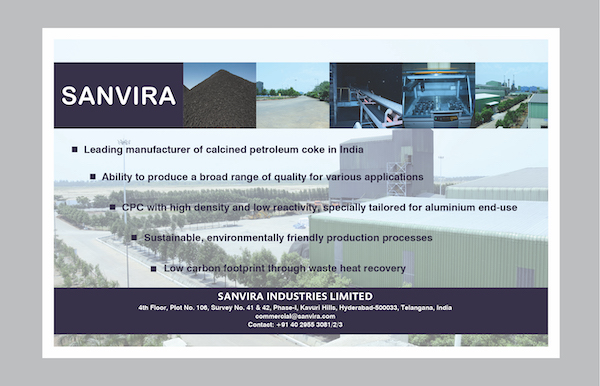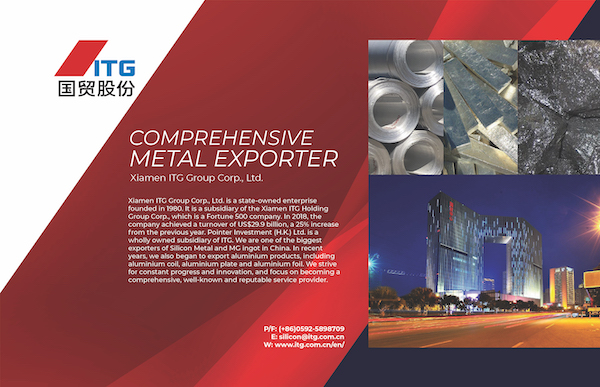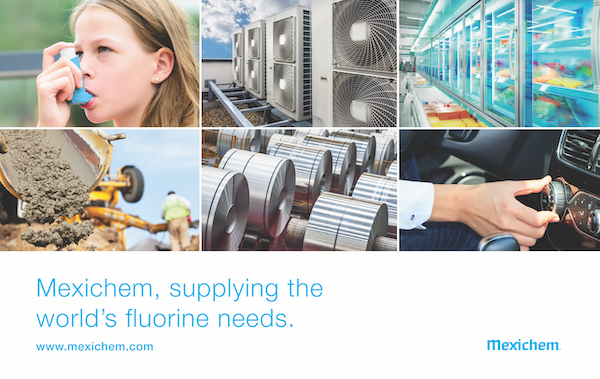Vikas Sharma has not one, but two, big dreams. As CEO of the Bharat Aluminium Company (BALCO), he wants to reach 1.1 million tonnes of aluminium production capacity within the next 18 months.
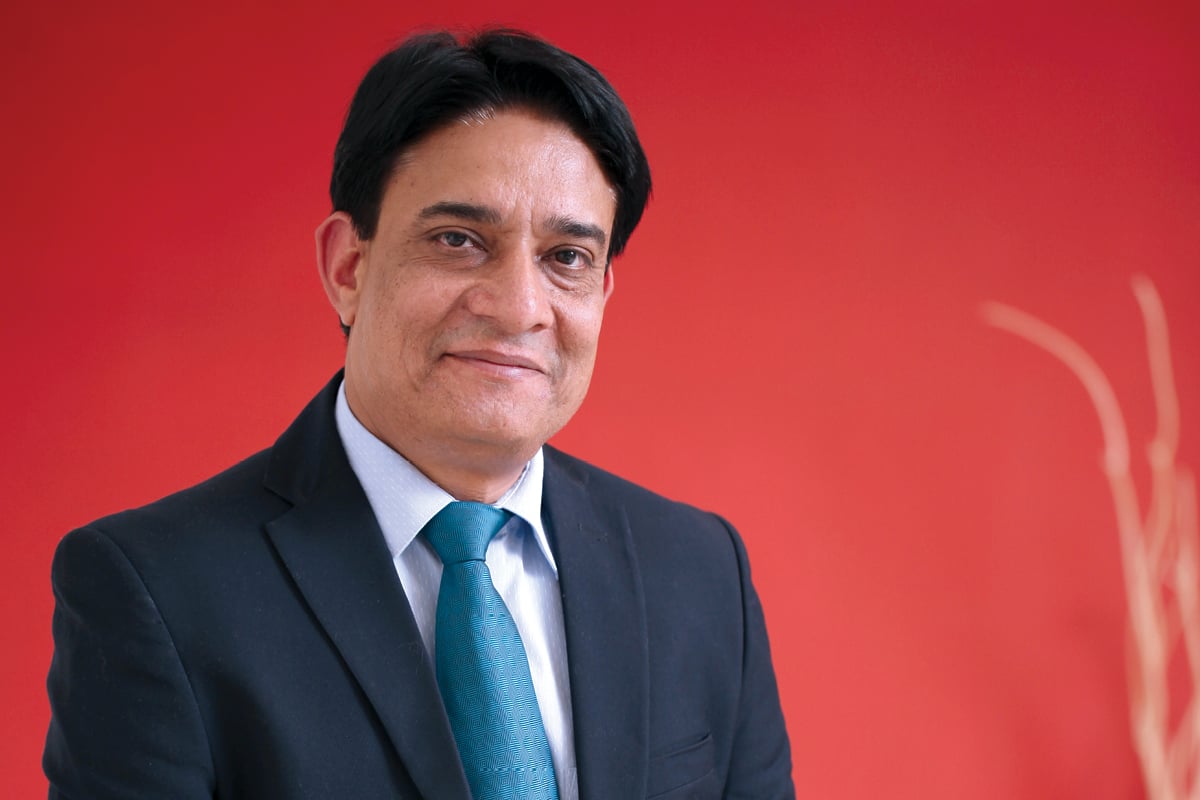
And then, “Going forward, my ultimate aim – which I have started visualising – is to take BALCO to a three-million-tonne capacity. So that it will be the largest aluminium producer in the country.”
BALCO was founded as a public sector undertaking in 1965 with a vision to be a leading integrated aluminium and power producer in India. It was wholly owned by the Indian government until 2001, when a 51% stake was sold to Sterlite Industries, a subsidiary of mining company Vedanta.
BALCO’s operations are in Korba, Chhattisgarh and include bauxite mines in Kawardha and Mainpat, as well as two smelters; one with a 345 kilotonnes per annum capacity and the other, 245 kilotonnes.
In addition, the company has power plants to support its smelters. Vikas joined the business in 2017, bringing more than 28 years of mining experience with him.
He previously worked as COO for Smelters at Hindustan Zinc and prior to that, as Senior Vice President of JSW Steel. Having a strong knowledge of the mining sector, Vikas found BALCO to be the best next step in his career. “Any future growth, be it industrial or economical, lies with the natural resources and primary metal companies,” he says.
“Any future growth, be it industrial or economical, lies with the natural resources and primary metal companies.”
BALCO produces a range of aluminium-based products including ingots, wire rods, hot rolled coils and plates, cold rolled sheets and chequered sheets. Throughout its operations, BALCO has had many firsts in India.
It was the first integrated aluminium site; the first to make alloy rods for the power transmission industry; and the first to roll material for the aerospace industry.
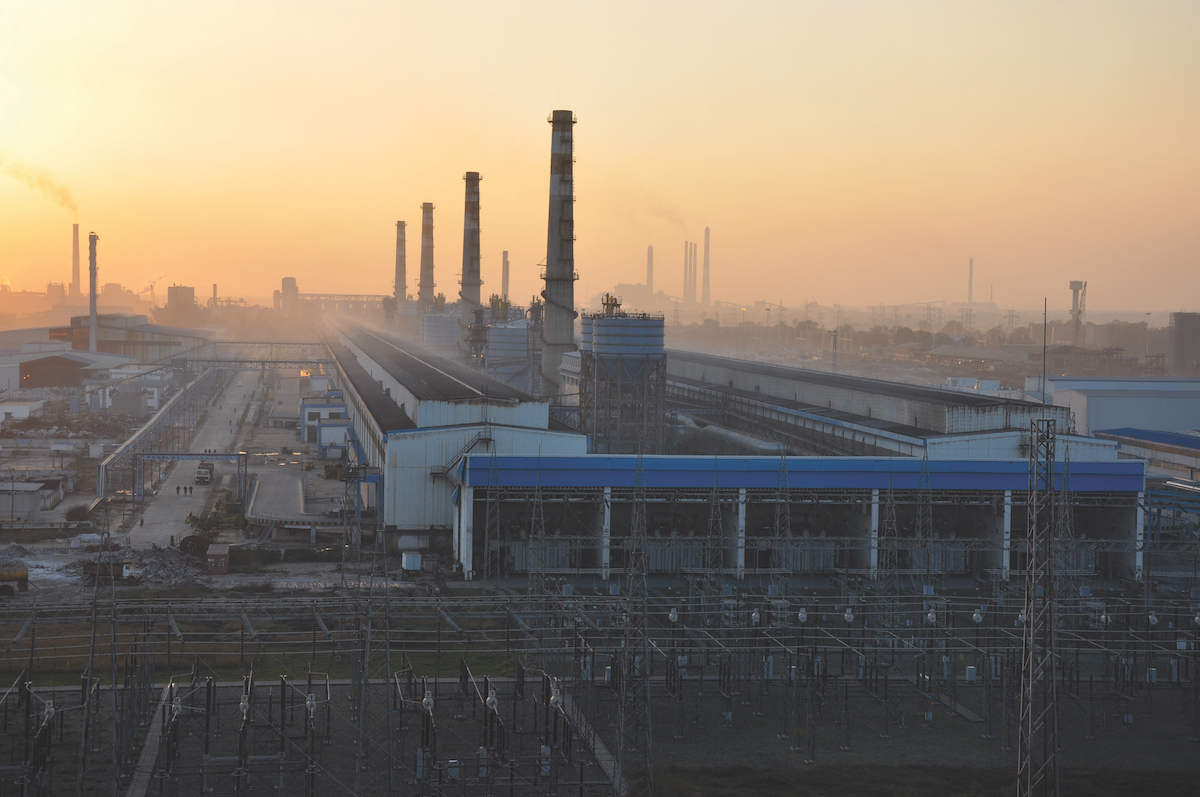
One of the strategies Vikas introduced when he started was a focus on value-added products. “Value-added products essentially mean that we create more alloy goods.”
He mentions that before he joined BALCO, around 43% of its total production was value-added products. “I wanted to double that and now we are close to 70%. That was a challenge we embraced because more value-added products mean better value per tonne of aluminium.”
Vikas eventually wants to see that figure rise to 100%. To reach this goal, the company is expanding its product range in the automotive sector.
Vikas says BALCO was the first aluminium company in India to receive the ISO TS16949 certification. This quality management standard is specifically for the automotive industry and highlights the quality requirements for the development, design and production of a product.
“I am into automobiles in a big way,” Vikas says. “I want to optimise manpower so that I can give the highest per capita production in the country.”
Vikas notes that a lot of automotive products are being imported from China and other countries. While this could pose a threat to India’s metals sector, Vikas sees it as a challenge for BALCO. “We want to ensure that our automotive market grows,” he says. “The challenge is to replace those imports with 100% of our products.”
Extracting aluminium
Aluminium is the third most abundant element in the Earth’s crust, after oxygen and silicon. It is mainly sourced from bauxite and, when purified, bauxite produces aluminium oxide (alumina).
From there, the aluminium is extracted through the process of smelting. Smelting uses electrolysis to break down a chemical into its chemical components.
While smelting is necessary to extract aluminium, it requires a lot of electricity. Vikas notes that BALCO needs sufficient coal supplies to keep its company moving.
And coal is becoming more difficult to come by. “We don’t get adequate coal so we have to import it. We will have to depend a great deal on China and other countries,” he says.
Vikas highlights the energy efficiency of BALCO’s power plants and its overall mission to reduce waste. “Our power plants are running very efficiently. Our power consumption is low compared with that of our competitors.”
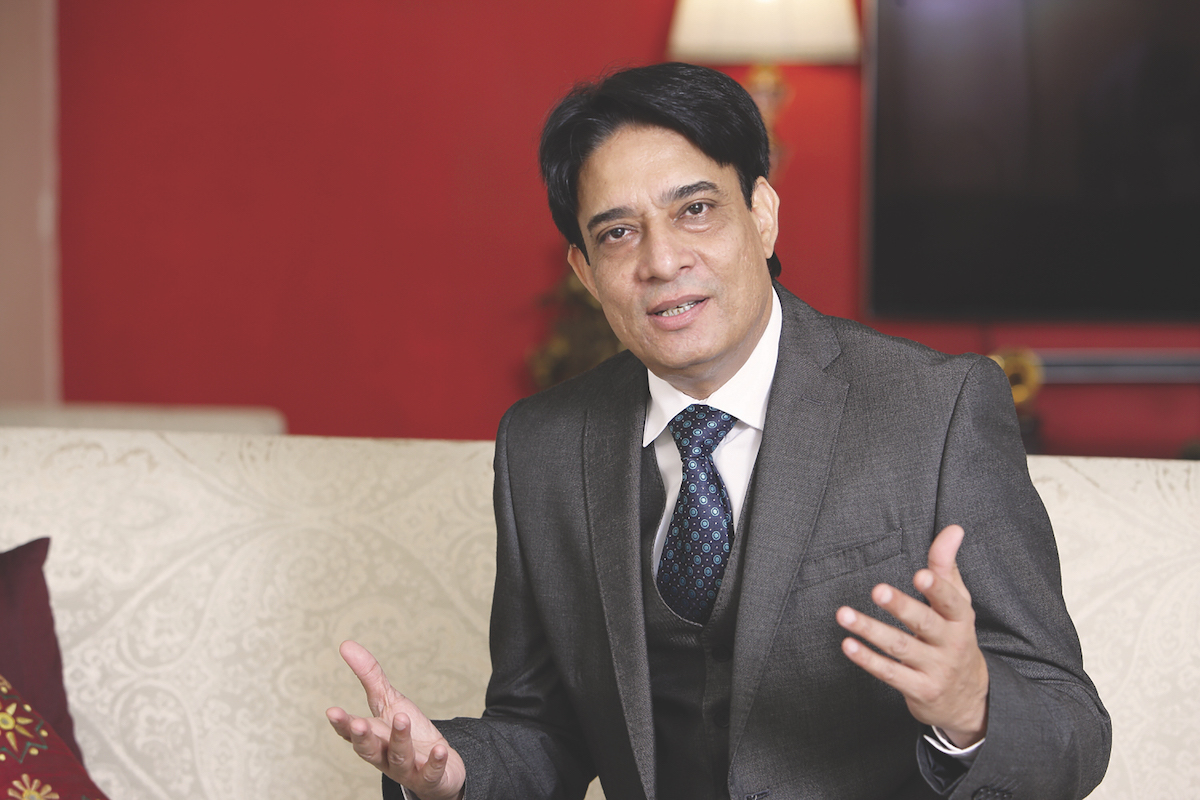
BALCO has undertaken several initiatives to reduce its energy consumption and waste production. Vikas notes that reduction of overall energy consumption is even integrated in senior management’s KPIs.
The company has a ‘Waste to Wealth’ department for maximising the benefit from waste. Any waste generated goes through the 3R cycle: Reduce, Reuse and Recycle.
BALCO uses fly ash – the ash created by burning powdered coal – to backfill its mines and sends some of it to cement manufacturers. It has set up initiatives to replace existing lights with LEDs and has installed solar panels on the roofs of buildings to reduce the dependency on non-renewable power sources.
Further, the company has a vendor for detoxifying spent potline, the waste produced during the aluminium smelting process.
People power
Beyond the technical processes required to sustain aluminium production, Vikas wants to support the company’s workers. This is especially important considering its history.
When the Indian government announced its plan to disinvest 51% of BALCO, it caused shockwaves through the workforce. Some were opposed to the company’s privatisation, arguing that if Sterlite purchased the stake, it would create a monopoly in the aluminium industry.
Further arguments were raised that the government was selling BALCO at a far lower price than its market value. The Government of Chhattisgarh was opposed to the disinvestment, with the state’s Chief Minister, Ajit Jogi, even threatening to cancel the land lease and bauxite mining licence granted to BALCO.
The sale debate eventually escalated to Parliament. In March 2001, Parliament approved the deal. Shortly after, the company’s 7,000-strong workforce – including the workers’ union – launched a strike which lasted 67 days.
It ended after management agreed to back pay the workers for two months and promised there would be no lay-offs. “We used to see many disturbances happening at work,” Vikas says.
“The big challenge for me was how to quell the uprisings in this place. BALCO is the first company in Chhattisgarh to sign long-term settlements with contractors.
“The industrial environment has now become amicable. We have been able to connect with more enthusiasm with the community. People are engaging with us in the same positive way that we are with them. We follow a culture of care for employees – safety, health, family, wellbeing and overall welfare.”
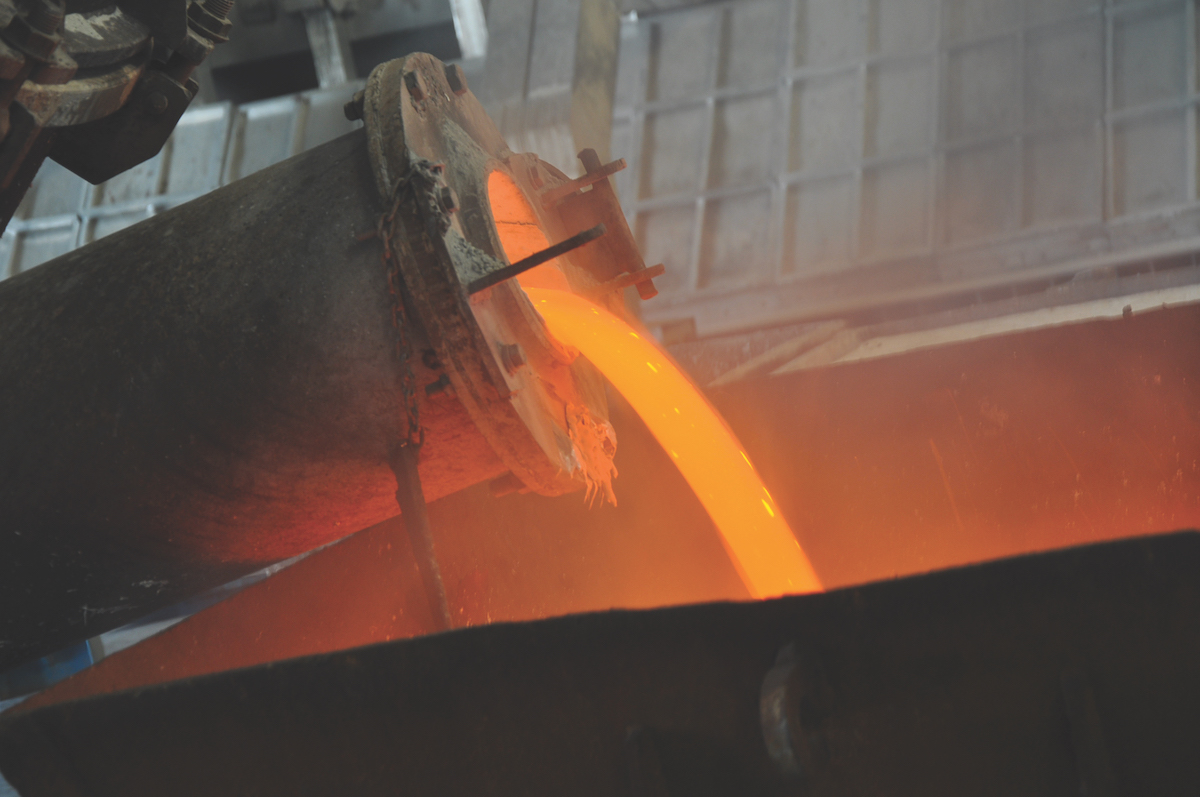
All about collaboration
Vikas describes his leadership style as collaborative. “I strongly believe that each individual is born with a unique set of qualities that make them an asset to an organisation and to society. I try to approach leadership in an inspirational way to bring the best out of my team.”
“I strongly believe that each individual is born with a unique set of qualities that make them an asset for an organisation.”
However, he insists that non-performers have to face consequences. “Sizing people up is equally important to make the organisation more productive and meaningful.”
Corporate social responsibility is a top priority for BALCO. “As our chairman says, the purpose of our existence is to build the nation and give back to society,” Vikas says.
The company has contributed INR400 crore (US$57 million) to set up the BALCO Medical Centre in Atal Nagar (formerly Naya Raipur). The state-of-the-art hospital provides cancer treatment services including radiation oncology, palliative care and radiology.
The world’s top eight aluminium producers, 2018
- China – 32.6 million MT
- Russia – 3.6 million MT
- Canada – 3.21 million MT
- India – 3.2 million MT
- United Arab Emirates – 2.6 million MT
- Australia – 1.49 million MT
- Norway – 1.22 million MT
- US – 740,000 MT
BALCO operates with a strong ecosystem of suppliers that help keep the operation alive. “We strongly believe that our business partners form our backbone, be they the vendors, the contractors that work with the company or the transporters who ferry raw materials,” says Vikas.
“They are vital to our success. Unless they are integral to our core process and value chain system, we will not be able to deliver the goods.”
Vikas emphasises the benefits of having a mutual understanding with BALCO’s suppliers, especially around safety.
“When we start making our workplaces safe, it helps the mission. The people get the right attention, the right equipment and PPE, the right work environment and they can go home safe. And overall the whole nation becomes safe. The second thing is the environment policy. If they take care of the environment in whatever business they are in, the whole nation benefits.”
Vikas adds that the company listens to its business partners’ needs in any way it can. “We work very closely with these people – we view them as an important part of us. Recently we had a big business partner meeting where around 190 vendors participated from across the globe. We had great discussions with them on various subjects where we said, ‘Let’s understand what your expectation of BALCO is and what our expectation is of you.’”

Having these partnerships also assists BALCO in maintaining a safe and healthy operation. “We believe that if these people are safe in their work areas – they follow all the safety and environmental rules and regulations – they’ll give us a greener product.”
Most importantly, having a strong business relationship with suppliers means BALCO can maintain the high quality of its products.
“We also talk to vendors about how we can develop quality products by developing environments where our workplace is clean and more organised. There can be continual improvement. We can send out teams to them, they can bring their teams to us, and together we can develop the complete value chain.”
Communication is the key to upholding a healthy business relationship and it is something that can even help bring costs down. There are several questions Vikas would ask suppliers, such as: How can they reduce imports? How can they improve productivity? How can they reduce waste?
“We ask, how can we work together to derive those values?” he says. “We have different sessions with our suppliers and continue to have sessions.” Vikas has several strategies up his sleeve to improve productivity at the company.
Fast facts about aluminium from The Aluminium Association
- Aluminium performs better during an accident; absorbing twice the crash energy compared with steel. When a crash happens in a vehicle, aluminium crash rails fold like an accordion, and this minimises and directs energy away from the passengers.
- On average, aluminium cans are made of 70% recycled content, more than three times as much as plastic or glass bottles.
- Aluminium in vehicles has a 20% smaller carbon dioxide footprint compared with steel. When used for vehicles, it saves the same as 44 million tons of carbon dioxide emissions compared with steel.
- Aluminium wire resists corrosion, doesn’t spark and doesn’t rust, making it ideal for electrical appliances in coalmines and refineries. Aluminium is also used for shark cages because it’s both buoyant and non-corrosive.
- Aluminium is a major component of Leadership in Energy and Environmental Design certified green buildings. When used in roofs, aluminium can reflect up to 95% of solar energy, which increases energy efficiency.
- Aluminium is 100% recyclable. Recycling saves more than 90% of the energy required to produce the same amount of metal from its raw material.
- Almost 75% of all aluminium ever made is still being used today.
“Once we get to one million tonnes, we’ll need to get more raw material such as bauxite or alumina. We are looking at creating new mines. We are also trying to work out a long-term deal with some agencies onsite on how to get the minerals at a good price. We want something that helps us compete in the market. We are looking at bringing newer technology and innovative methods to improve our current performance. We have deployed an Integrated Coal Transport Management System, security command centres and highly automated intrusion detection systems. We have a culture based on the quality circle and lean management to eliminate various wastes and improve our throughput.”
At the end of the day, Vikas will continue his mission to make BALCO the best aluminium producer. “We want to be the safest and most valued aluminium supplier globally, with 100% value-added products.”
What keeps BALCO running
We shine a spotlight on the companies that BALCO is in partnership with:
-
Chandi Steel Industries
Chandi Steel Industries is a subsidiary of steel and power generation company Jai Balaji Group. It was established in 2003 and operates steel mills and blast furnaces. The Jai Balaji Group is one of the largest steel producers in East India’s private sector. It has five manufacturing facilities across West Bengal and Chhattisgarh. Its main products are sponge iron, pig iron, ferroalloys and iron pipes.
-
Western Carriers India
Western Carriers is considered one of the largest logistics businesses in India. It conducts rail, road, air, ocean and custom transportation services, as well as warehousing. Western Carriers has more than 70 branches throughout the country and includes multimodal transport such as road to rail and road to river. It has a fleet of vehicles including trucks, cranes, forklifts and trailers, and more than 1,000 road consignments per day.
-
Chennai Radha Engineering Works (CREW)
CREW specialises in bulk material handling systems for thermal power plants and ports. Over its more than 30 years of operation, it has established a broad reach across India. It has more than 7,000 workers across 39 plants in 11 states. Some of its services include coal loading and unloading at major ports in India and the UAE; operating and maintaining coal- and ash-handling plants; and supplying material-handling equipment to a range of projects.
-
Xiamen ITG Holding Group
Xiamen operates businesses across five sectors, including real estate, supply chain, manufacturing, finance and emerging industries. Its real estate arm comprises construction, property management and real estate development, and its supply chain extends across automobiles, logistics, commodities and high-end retail. In terms of finance, Xiamen holds venture capital funds and financial leasing companies, among other financial services businesses.
It also has shares in Century Securities, the Bank of Chengu and China Industrial International Trust. Xiamen’s manufacturing arm focuses on optoelectronics (systems used to control light), IoT technology, medical gloves and chicken feed. The company’s focus on emerging industries includes supporting education, health care, tourism and cultural activities. Xiamen has been ranked a Fortune Global 500 company as well as one of the Top 500 Chinese Enterprises.
-
Lizmontagens Thermal Technologies (LTT)
LTT specialises in industrial furnaces, chimneys and related materials. It provides these products to the iron and steel, cement, aluminium, ceramic and chemical industries – to name a few. Among its services are waste management and demolition, furnace construction, sealing and insulation, as well as steel structure fabrication and installation.
-
Mexichem
Mexico-based Mexichem provides products and solutions for several industries, including construction, agriculture, infrastructure and transportation. With a history dating back to the 1950s, Mexichem has carved a significant position on the global stage.
It employs 22,000-plus people and operates 137 production plants, 18 research and development facilities, eight training academies and two fluorite mines. The company’s services include water, cooling, heating and data solutions. It also delivers PVC and fluorine-based products. It’s business strategy focuses on expansion and it has made 82 acquisitions to date.
-
Sanvira
Sanvira produces calcined petroleum coke (CPC), a key ingredient used to produce aluminium. Its production facility is located near Visakhapatnam in India and has a 330,000 megatonne capacity. The company’s CPC is also used for steel, titanium-dioxide and other industries. As it is located next to both the Visakhapatnam and Gangavaram ports, it can supply both national and international customers.
Vedanta Group: An introduction
BALCO is a subsidiary of Indian-based Vedanta Resources. The resources company was founded in 1976 by entrepreneur and philanthropist Anil Agarwal. Anil still serves as the company’s chair.
Its mining businesses are located in India, South Africa, Zambia and Namibia. Vedanta owns Hindustan Zinc, Sterlite Copper, Sesa Goa Iron Ore, Cairn Oil and Gas, Talwandi Sabo Power Limited (TSPL), Vendata Zinc International and Konkola Copper Mines (KCM).
Hindustan Zinc is one of the largest integrated zinc/lead producers in the world. It owns five lead/zinc smelters, two lead smelters, nine power plants and seven sulphuric acid facilities within the states of Rajasthan and Uttarakhand.
Around 58% of zinc produced worldwide is used for galvanising, which prevents steel from corroding. Further, zinc is used heavily for making alloys such as brass as well as in the construction industry. Other uses for zinc include paint, ceramics, pharmaceuticals and animal feed.
Sterlite Copper accounts for 36% of India’s demand for copper. Its operations include a 400,000 metric tonnes per annum copper smelter, a sulphuric acid plant, a phosphoric acid plant, two copper rod plants and a coal-based power plant.
Its main products include copper cathodes (used for making alloys such as bronze and brass) and continuous cast rods (used in power and communications, magnet wires and transformers). Sterlite’s by-products include sulphuric and phosphoric acid, both used for fertiliser.
Sesa Goa Iron Ore mines and processes iron ore, which it supplies both nationally and internationally; particularly to Japan and China. The company was established in 1954 when it began mining iron ore.
Since then, it has diversified to pig iron and metallurgical coke (met coke). Pig iron is used to produce alloys and automotive castings while met coke is used to reduce the iron ore grade in different steel products.
Sesa also owns two waste heat recovery plants that produce 30MW of power. The facility generates electricity from the waste produced at Sesa’s met coke and pig iron facilities. Some of the electricity is sold externally. The company is headed by CEO Naveen Singhal.
Cairn Oil and Gas has been in operation since 1994. It has made 50 discoveries of oil and in 2018, accounted for 185,587 barrels of oil equivalent per day. In 2004, the company made the largest onshore discovery of oil in 20 years – the Mangala field in Rajasthan.
Today, it has oil blocks in Gujarat, Rajasthan and Andhra Pradesh. In the future, Cairn Oil and Gas aims to expand its contribution to India’s oil supply from 25 t0 50%.
TSPL was designed by the Punjab State Electricity Board to construct a 1,980MW thermal power plant in Punjab. The plant is set to use energy-efficient, super-critical technology to generate electricity. The technology will allow the company to produce the same amount of electricity but with less coal, ultimately making it more environmentally friendly.
The company is named after the town of Talwandi Sabo, which is of historical and religious importance to Sikhs. It is one of the five Takhts – a seat of authority – in Sikhism and is where the religion’s sacred text, the Guru Granth Sahib, was handwritten.
Vedanta Zinc International is headquartered in Johannesburg, South Africa, and owns a group of zinc assets. These include the Black Mountain Mining company, which operates the Gamsberg Project in South Africa, and the Skorpion Zinc Mine and Refinery in Namibia. The businesses employ nearly 5,000 workers. The company also owns the Lisheen Mine in Ireland; however, this ceased operation in 2015.
KCM is based in Zambia and is an integrated copper producer. Vedanta acquired the business in 2004 and contributed billions of dollars to build new facilities, upgrade equipment and expand capacity at its projects. KCM employs nearly 13,000 workers, 11% of whom are women.
In addition to the company’s focus on zinc, it also has a commitment to corporate social responsibility. Each year, the company provides 40 scholarships to high achievers in government schools and more than 2,400 students are studying in schools funded by the company.
In terms of health care, the company operates two hospitals and 14 clinics. It also supports livestock restocking efforts; giving around 900 cattle and 3,000 goats to local communities over the past three years.
Proudly supported by:
